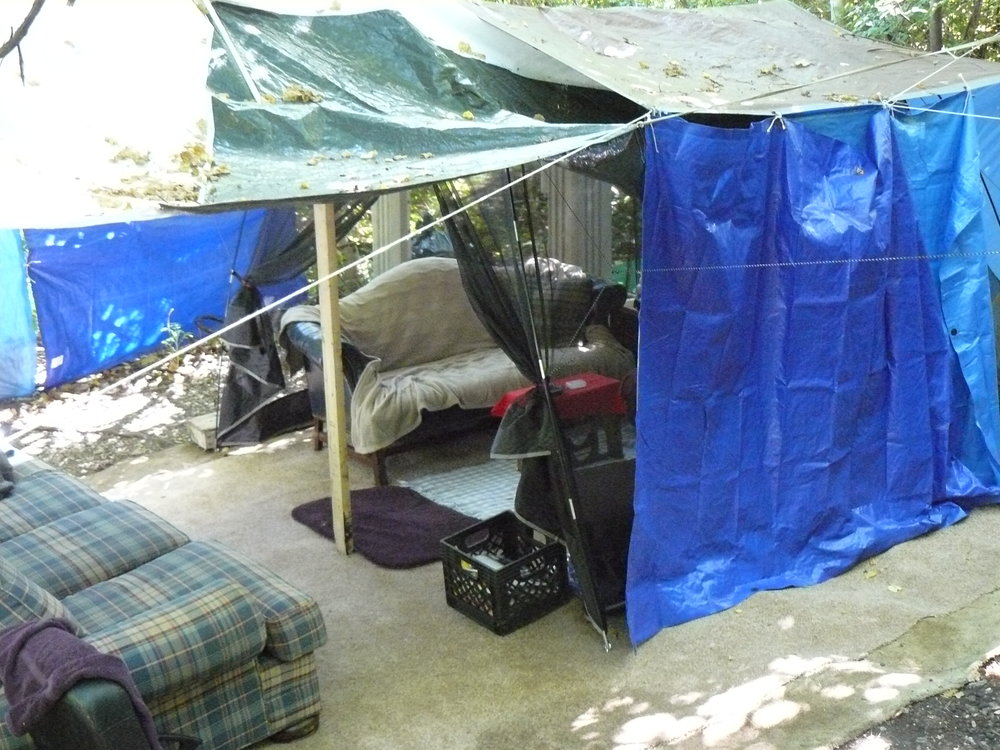History of NEOCH Civil Rights

Clements vs. Cleveland
The first attempt in the mid 1990s to stop police arresting and threatening arrest of homeless people for purely innocent behavior of sitting or sleeping on the sidewalk. Police accused of driving homeless people to the outskirts of Cuyahoga County and dropping them off the bus line. The City of Cleveland eventually settled with the four plaintiffs and basically blamed “rogue cops” for misinterpreting the directives issued from the administration. Richard Clements passed away in New York this year.
Homeless Grapevine vs. City of Cleveland
The City felt that vendors of the street newspaper must buy a license before they could sell a paper on the sidewalks of Cleveland. NEOCH won in the district court, but was reversed on appeal. City tried to pass legislation to force vendors buy a license, but could not get the legislation through the City Council. Vendors are currently free to sell the paper within the City of Cleveland with only an agency issued license, but City maintains right to regulate the sidewalk if the City Council can agree.
Key vs. City of Cleveland
This was the second attempt to stop the sweeps of homeless people in Cleveland. Police began ticketing homeless people around the holidays to encourage people to come Downtown to shop. Police were willing to testify that this was City policy at the time because they did not want to be labelled as “going rogue.” Cleveland settled the lawsuit in 2000 and we have posed the settlement on our website. It basically states that the police will not arrest or threaten arrest anyone for purely innocent behavior of sitting, sleeping, standing or eating on the sidewalk as long as they are not blocking access. NEOCH tests this agreement every November to assure that it is still being followed (Appendix A).
Stun Gun Attacks
In the early 2000s, there were young people who came to Cleveland from Youngstown and recorded themselves using a Taser stun gun to shock homeless people and film their reaction. NEOCH pushed for harsh punishments for these three young people, and held a community meeting to talk about protection for vulnerable populations.
Homeless Exploitation Videos
There were major retailers in the United States online and in stores that were selling videos of homeless people fighting in exchange for change or alcohol. NEOCH worked with the National Coalition for the Homeless to convince major retailers such as Best Buy and Target to stop selling these exploitation videos in their stores. These were recorded by young people and collected together and then sold in many stores and online retailers.
Covenant to Serve Food
The City was concerned over the mess being created on Public Square by church groups feeding homeless people. We worked with the new administration to avoid the City passing legislation that we would have had to challenge in court. NEOCH worked out a “covenant” where the church groups would move off public square to a parking lot with trash and bathroom facilities and the City agreed to not introduce legislation.
The Right to Shelter
Since the founding of the Coalition, NEOCH has fought to assure that the shelters are accessible to everyone in need and at no time will the shelters turn people away over a lack of space. For over 20 years we have had guaranteed access to shelter in Cleveland, and we have worked to improve the conditions at the shelters. When the shelters are full, providers will transport people to a church or recreation center as an overflow site if the building capacity is reached. We also support the development of an overnight drop in center similar to Metanoia for the entire year.
Voting Lawsuit Against the State of Ohio
NEOCH has filed suit against the State of Ohio and three Secretaries of State from 2005 through the present over voting procedures in the state. Our concern was regarding the identification requirements and their impact on reducing turnout by low income, homeless and minority voters. I have provided a series of depositions in this case. In years 2006, 2008 and 2012, we had a settlement with the state to allow homeless people to use a social security number to have their ballot count if they voted in person. This agreement was binding until 2014 when the state changed the law regarding the use of identification for provisional ballots.
Brian Davis
Posts reflect the opinion of those who sign the entry
